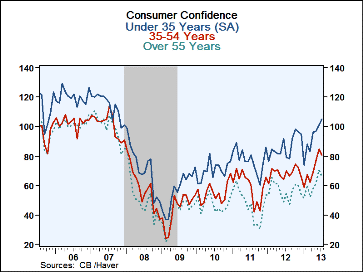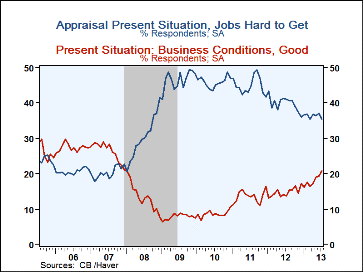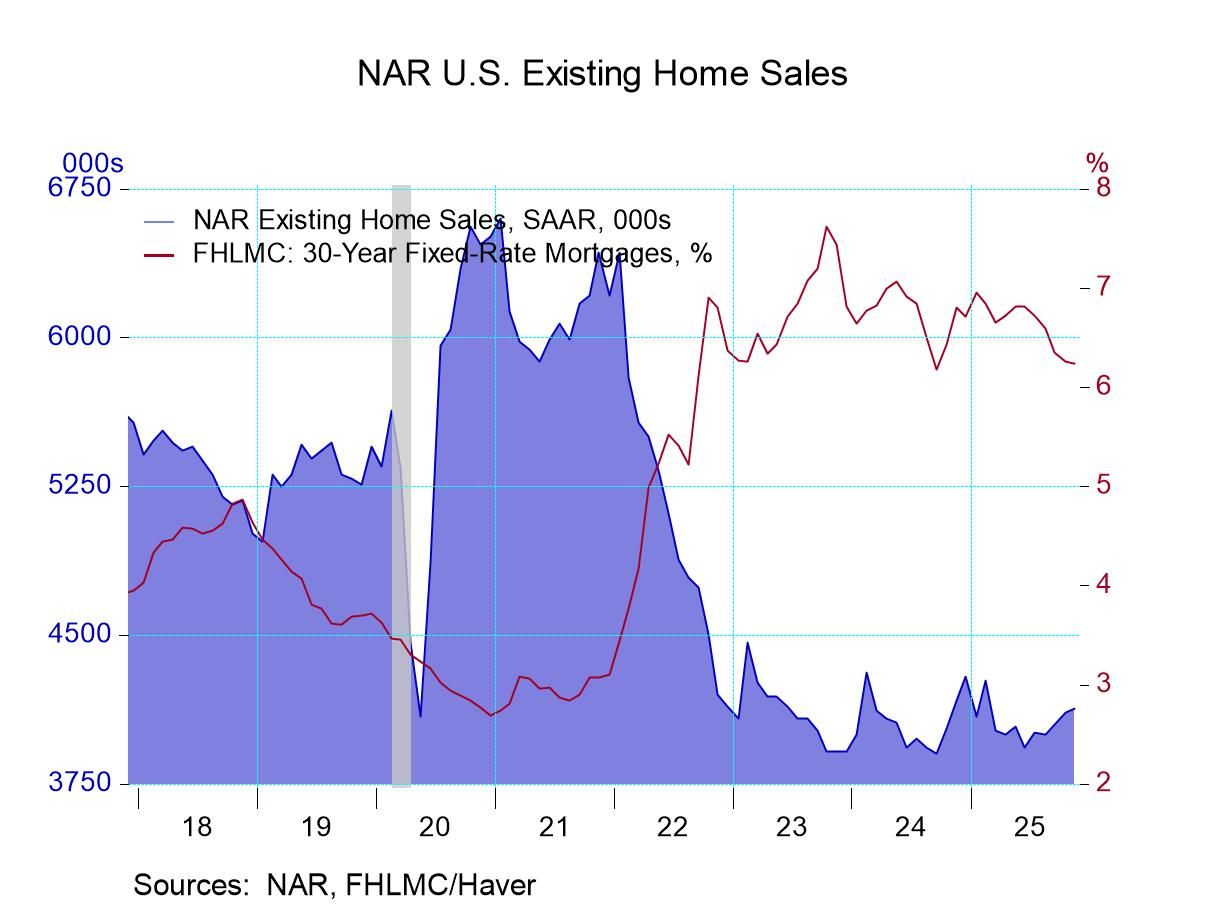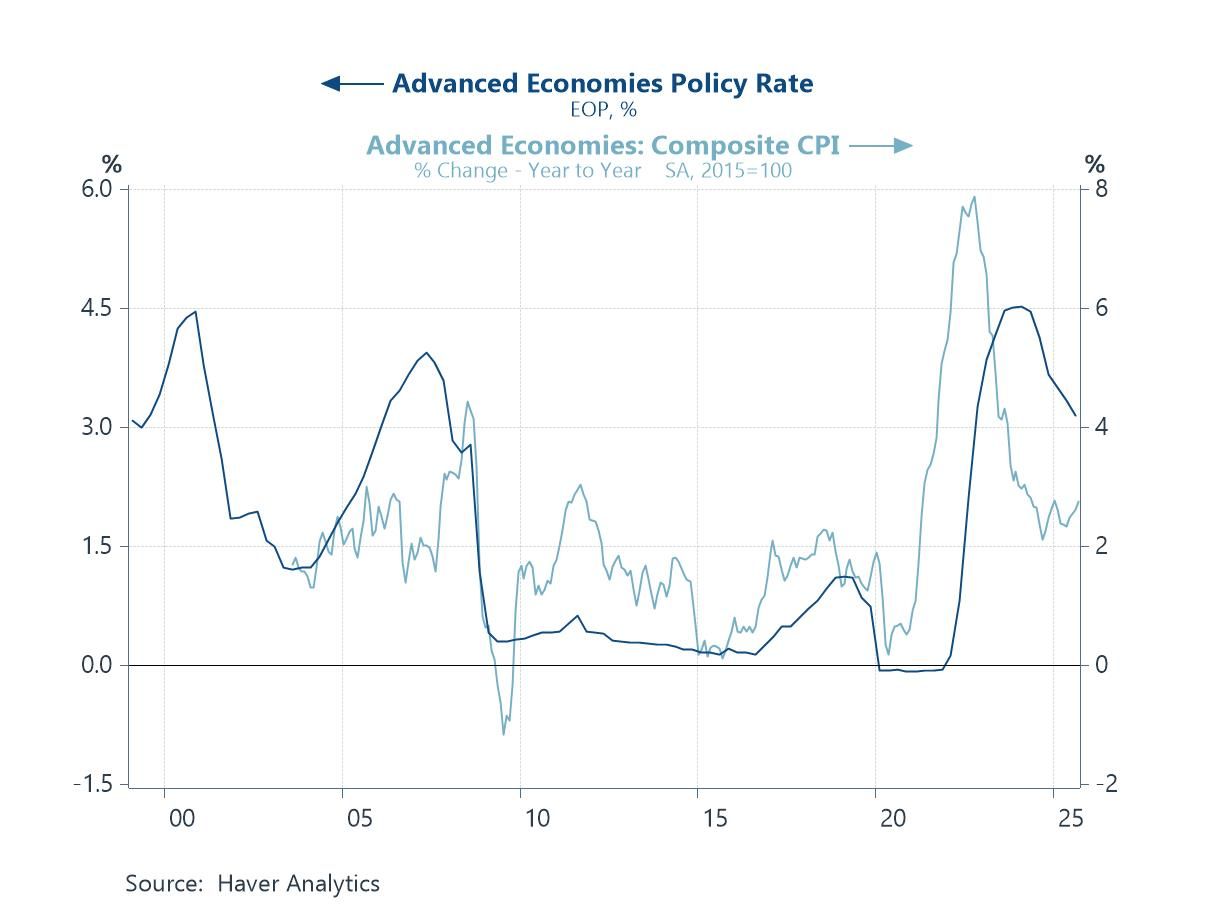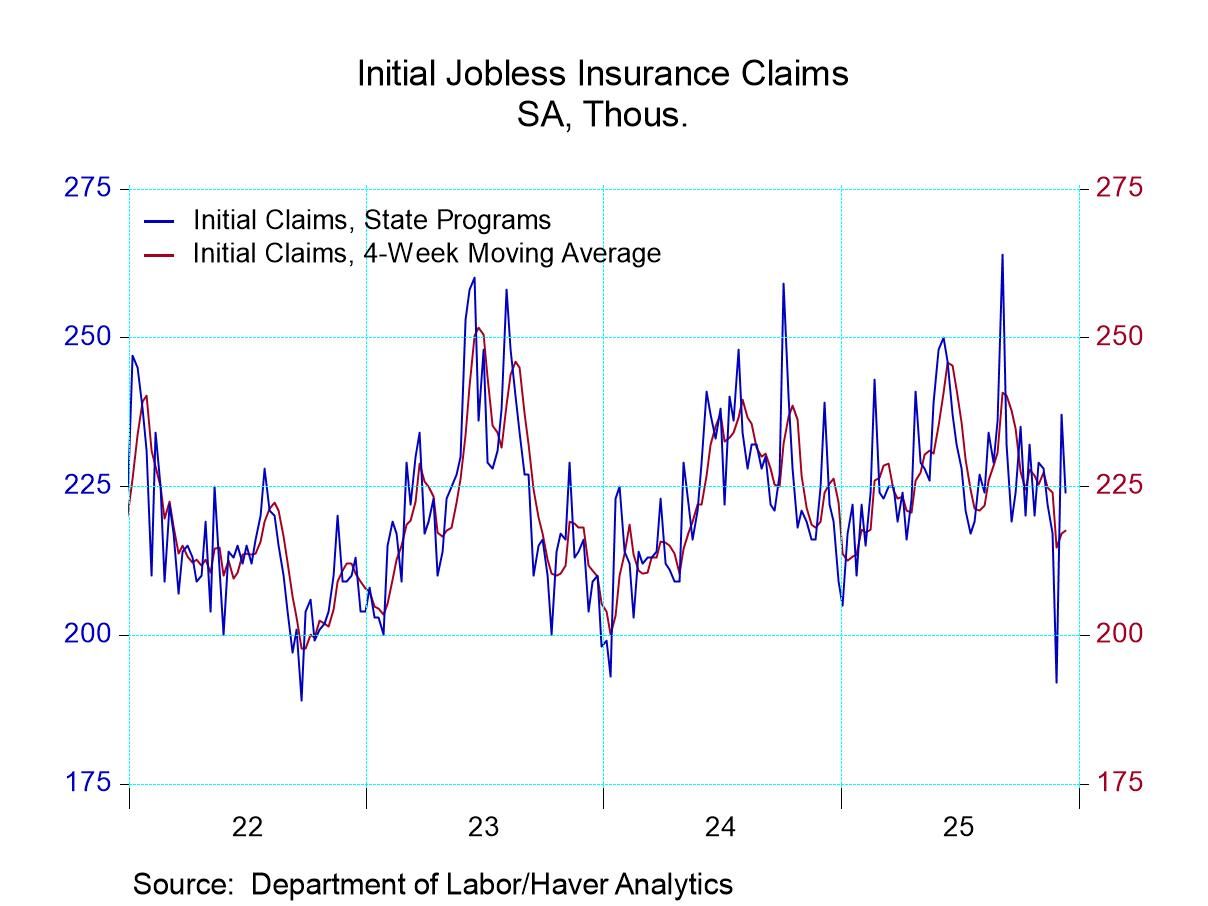 Global| Jul 30 2013
Global| Jul 30 2013U.S. Consumer Confidence Shows Optimism of Youth
by:Tom Moeller
|in:Economy in Brief
Summary
The Conference Board's Consumer Confidence Index slipped to 80.3 this month from an upwardly revised 82.1 in June, weighted down by the over-35 crowd. Consensus expectations had been for 81.0. During the last ten years, there has been [...]
The Conference Board's Consumer Confidence Index slipped to 80.3 this month from an upwardly revised 82.1 in June, weighted down by the over-35 crowd. Consensus expectations had been for 81.0. During the last ten years, there has been a 47% correlation between the level of confidence and the three-month change in real PCE.
Among age groups, it was the youngest who showed more confidence about things economic -- a norm for this demographic. The latest reading for the under-35 age group was the highest since September 2007. Middle-aged individuals have become just slightly less confident. While older individuals felt better than during the last recession, the degree of improvement lags that of the young.
Further improvement continued this month in consumers' assessment of the present economic situation. The present situations index rose to 73.6, its highest level since May 2008. The 20.9% of respondents who thought that business conditions were good was the most since December 2007. Jobs were thought to be hard to get by 35.5% of respondents, the least of the economic recovery and down from the high of 49.4% in June 2011.
While the expectations figure slipped m/m, it remained at its highest level since early 2011. Expectations for business conditions and for jobs in six months deteriorated month-to-month, but overall have moderately built forward momentum during this recovery. Expectations for the inflation rate in twelve months held steady m/m at 5.5%, down from the 6.7% high in 2011. Expectations for higher interest rates in twelve months surged to 71.2% of respondents, the highest level since July 2006. The percentage expecting higher stock prices fell sharply to the lowest level since January.
The consumer confidence index for those under 35 years ticked up to the highest level since December 2007. Confidence amongst middle-aged individuals improved sharply to the highest since January 2008 while confidence amongst individuals over 55 years surged to the highest level also since January 2008.
| Conference Board (SA, 1985=100) | Jul | Jun | May | Y/Y % | 2012 | 2011 | 2010 |
|---|---|---|---|---|---|---|---|
| Consumer Confidence Index | 80.3 | 82.1 | 74.3 | 22.8 | 67.1 | 58.1 | 54.5 |
| Present Situation | 73.6 | 68.7 | 64.8 | 60.3 | 49.8 | 36.1 | 25.7 |
| Expectations | 84.7 | 91.1 | 80.6 | 8.0 | 78.6 | 72.8 | 73.7 |
| Consumer Confidence By Age Group | |||||||
| Under 35 Years | 104.8 | 101.1 | 96.9 | 32.0 | 86.5 | 77.3 | 70.4 |
| Aged 35-54 Years | 80.7 | 84.6 | 76.6 | 15.6 | 68.5 | 59.8 | 55.1 |
| Over 55 Years | 66.8 | 70.5 | 61.4 | 22.3 | 56.6 | 47.3 | 47.4 |
Tom Moeller
AuthorMore in Author Profile »Prior to joining Haver Analytics in 2000, Mr. Moeller worked as the Economist at Chancellor Capital Management from 1985 to 1999. There, he developed comprehensive economic forecasts and interpreted economic data for equity and fixed income portfolio managers. Also at Chancellor, Mr. Moeller worked as an equity analyst and was responsible for researching and rating companies in the economically sensitive automobile and housing industries for investment in Chancellor’s equity portfolio. Prior to joining Chancellor, Mr. Moeller was an Economist at Citibank from 1979 to 1984. He also analyzed pricing behavior in the metals industry for the Council on Wage and Price Stability in Washington, D.C. In 1999, Mr. Moeller received the award for most accurate forecast from the Forecasters' Club of New York. From 1990 to 1992 he was President of the New York Association for Business Economists. Mr. Moeller earned an M.B.A. in Finance from Fordham University, where he graduated in 1987. He holds a Bachelor of Arts in Economics from George Washington University.



